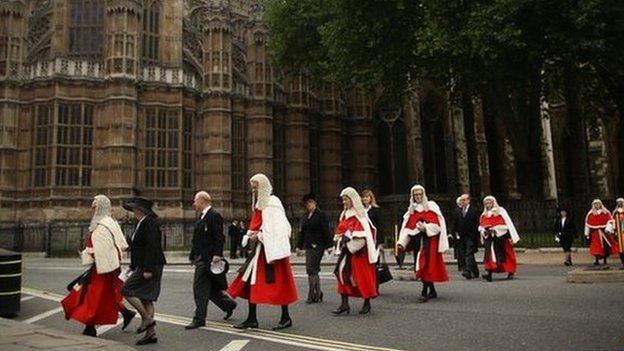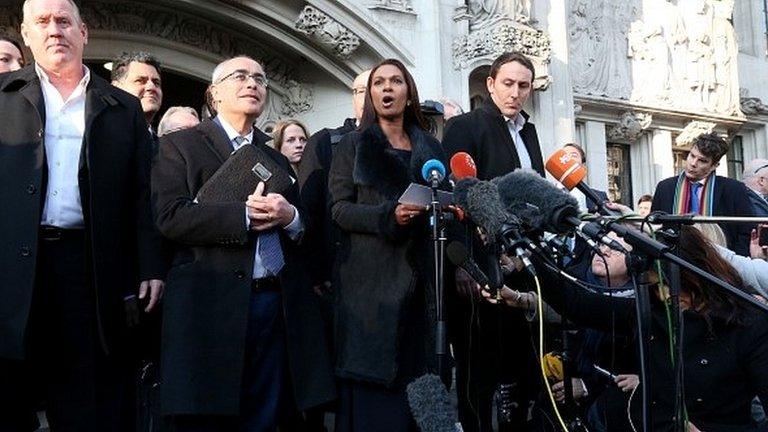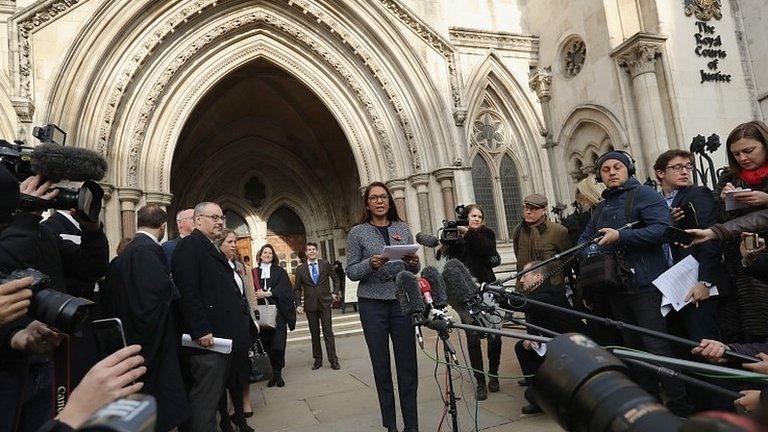Brexit case prompts lawyers to create citizenship lessons
- Published
- comments

What is the role of unelected judges in a democracy?
Newspaper comments branding judges "enemies of the people", after last year's High Court Article 50 ruling have prompted new British Constitution lessons for secondary pupils.
The lesson resources, developed by the Bar Council and the Citizenship Foundation, explain the judiciary's role in the democratic process.
They are being sent free of charge to every secondary school in the UK.
They were announced as the Supreme Court upheld the High Court ruling.
The Supreme Court rejected the government's appeal against November's High Court ruling that Parliament must vote on whether the government can start the Brexit process.
The 11 justices ruled by eight to three that only Parliament has the right to pull the UK out of the European Union, rather than ministers.
"The government cannot trigger Article 50 without an Act of Parliament authorised by law," said Supreme Court President Lord Neuberger.
In last June's referendum, UK voters backed Brexit by 51.9% to 48.1%.
Unelected judges
The Bar Council, which represents barristers in England and Wales, says the project began after it emerged that some schools had struggled "to find ways of talking to their students about the High Court ruling on Article 50 last year, when judges were branded in the press as 'enemies of the people'".
Sam Mercer, Bar Council head of policy for corporate social responsibility said: "How do you explain to a teenager that there is an argument for unelected judges in a democracy?
"Constitutional politics is not always easy to understand, but it is vital that our children properly understand how our government and judiciary work.
"These lessons will help students to understand why judges are involved in deciding questions such as who should trigger Article 50.
"Not everybody will agree with their ruling, but young people should be able to think critically about government and the judiciary, and we want to give them the right tools and information so that they can do it properly.
"A lot of young people will be following President Trump's first week in office and they may be interested to learn that he has a big influence over appointing judges to the United States Supreme Court. They might also be interested to learn that the UK does things differently."
Tom Franklin, chief executive of the Citizenship Foundation, which promotes better understanding of the law, politics and democracy among young people, said the lessons were designed to help pupils "understand the importance of the rule of law in upholding democracy in the UK by discussing a real-life and significant event".
"It is so important that we educate the next generation about the way our system works, specifically the way our constitution separates powers between the government, the legislature, and the judiciary so that they can be prepared to be active and engaged citizens as adults," said Mr Franklin.
- Published24 January 2017

- Published3 November 2016
